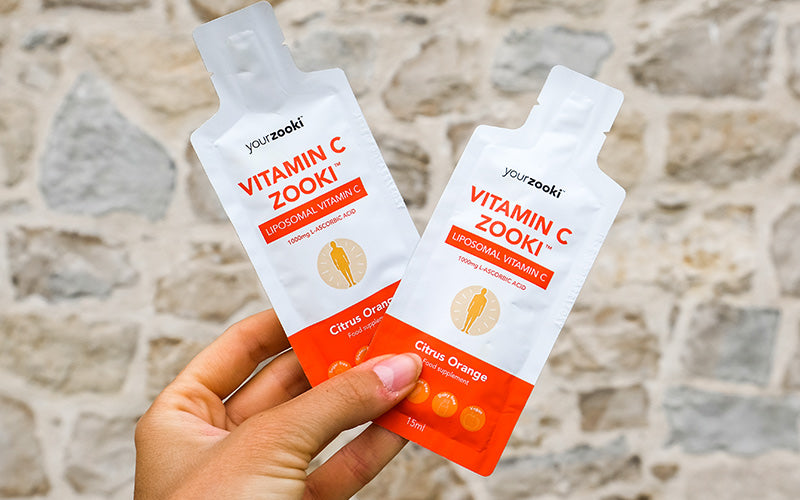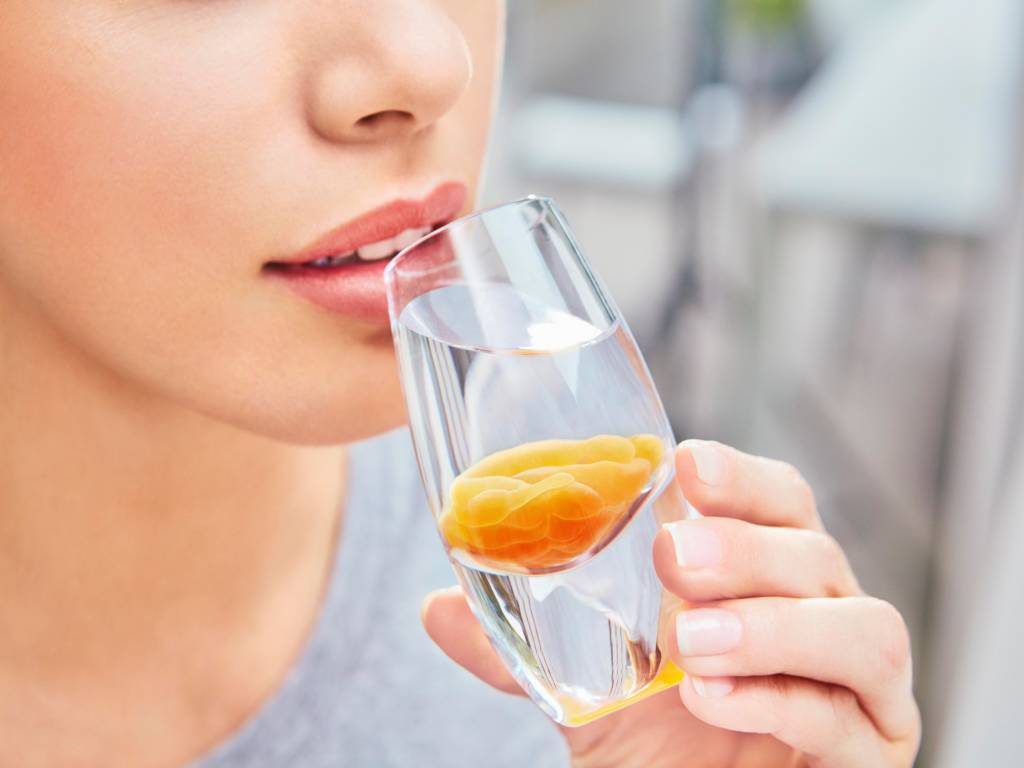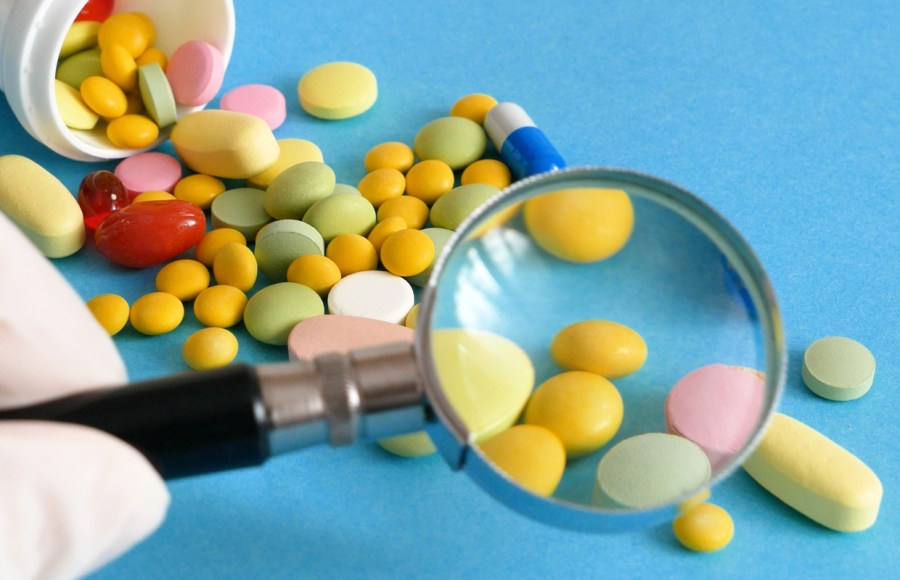Can you trust vitamins and supplements contain exactly what’s stated in the marketing material? In one case, a British regulator says an award-winning health supplement company made ‘unsubstantiated’ and ‘misleading’ claims about its product.
By Angela Kennedy
In a blow to trust in the supplement industry, the Advertising Standards Authority (ASA) ruled webpage advertising by YourZooki for its liposomal vitamin C did not satisfactorily provide proof the product contained liposomes.
The regulator said: ‘Because we had not seen conclusive evidence confirming the presence of liposomes in YourZooki’s product, we concluded that the claims “liposomal vitamin C”, and similar claims about the liposomal nature of the product, had not been substantiated and were therefore misleading.’
The ruling was made after the ASA had YourZooki’s evidence reviewed by the Laboratory of the Government Chemist. The regulator ordered the company: ‘not to claim their product was “liposomal vitamin C” or make similar claims about the liposomal nature of the product unless they held adequate substantiation for those claims.’

Popular supplement company YourZooki is under fire for allegedly ‘misleading’ customers. Image via YourZooki.com
The unregulated liposomal vitamins market
The complaint was made by Abundance & Health, UK distributor of Altrient, a pioneer in liposomal products.
‘We regularly check competing liposomal vitamin C products for their liposome content and encapsulation rates. In September 2020, YourZooki returned negative results for liposomes. No liposomes were detected in their product.
‘We contacted YourZooki about the results and asked for evidence of liposomes. They refused to discuss the matter. As the liposomal market is not regulated, our only way to highlight misleading claims is the ASA and Trading Standards.
‘Our goal is to protect the consumer and genuine liposome producers. We want regulation and a certificate of authenticity for liposomal products to uphold industry standards and for consumer protection,’ says Tim Orchard, Abundance & Health director.
The rise in demand for liposomal vitamins
Demand for liposomal vitamins is booming, partly due to the pandemic. In 2020, Altrient’s liposomal vitamin C sold three months’ stock in 36 hours.
In particular, vitamin C is being snapped up as scientific studies say it can help shorten the duration of respiratory infections, like the common cold. The case for taking vitamin C for Covid is yet unproven, although clinical trials are underway.

Altrient, distributed in the UK by Abundance and Health, is a pioneer in genuine liposomal products, providing highly absorbable vitamins.
What makes liposomal supplements better?
The big draw for these vitamins is the liposomal technology – and its unique ability to maximise absorption of nutrients.
Liposomes are double-layered bubbles which are lab-created to transport nutrients directly to your cells, without being degraded by the digestive system. The bubbles are made from phospholipids – an organic molecule that’s naturally present human cells.
‘British scientist, Dr. Alec D Banghan discovered natural phospholipid molecules could be processed into microscopic bubbles, with a double-layered, parallel set of closed membranes, resembling real cell membranes.
‘He saw the potential for using these hollow spheres (liposomes) to encapsulate drugs for intracellular delivery. In the early 2000s, LivOn Labs used Liposomal Encapsulation Technology to create the world’s first liposomal vitamin C.
How do liposomal vitamins compare to standard supplements?
Many standard supplements don’t reach maximum absorption because of the harsh environment in the gut. At very low levels of intake vitamin C is efficiently absorbed and retained, but if taking higher therapeutic levels of 1,000 mg or more, absorption and digestive issues may become problematic.
‘The main benefit of true liposomal vitamin C is almost complete absorption, without digestive discomfort,’ says Susie Debice, a food scientist.
With such powerhouse nutrient delivery, it’s easy to see why consumers are clamouring for liposomal vitamin C.
But with the lure of big consumer spending come inferior, ineffective imitations, especially with complex, new technology that’s very expensive to create. Some companies may be passing off emulsions as liposomes – meaning the consumer is duped.

There has been a huge rise in demand for liposomal vitamins. However, some companies may be passing off emulsions as liposomes – meaning the consumer is duped.
Profiting off a trend?
‘Some manufacturers are simply blending together all the ingredients found in a liposomal product and hoping to pass it off as liposomal, probably because they don’t have the highly specialised knowledge, equipment and technology essential to achieve an effective liposomal encapsulation process.
‘Many ‘liposomal’ vitamin supplements are nothing more than phospholipid vitamin emulsions, misleadingly labelled liposomal – with none of the absorption benefits of a genuine liposomal product,’ says Tim Orchard.
The truth about the liposomal supplement market is an extreme case of ‘buyer beware’, according to Dr Thomas Levy, cardiologist, vitamin C expert and consultant to LivOn Laboratories.
‘The liposome supplement industry is rife with fraud, since it’s an expensive process to properly assess liposome quality and content for each batch. Many companies just make the assertion (of products being liposomal) until their wings get clipped.
‘A true liposome product is not an ill-defined emulsion. It’s an independent entity, with a lipid bilayer wall entirely surrounding it. The more the consumers make an effort to educate themselves beyond the claims of a company, the better they will be served,’ he says.
How to avoid fake liposomal supplements
Follow these top tips from Tim Orchard to make sure you’re getting the real deal when buying liposomal supplements…
- Ask brands and retailers for evidence to prove they are genuine
- Ask to see proof of liposomes in the form of Transmission Electron Microscopy (TEM) analysis. This is the only way to be able to clearly see and define the bilayer structure of the liposomes. A Dynamic Light Scattering (DLS) analysis will not tell you whether a product contains liposomes or not
- Look into the manufacturer’s testing procedures and independent clinical trials
- Look into the manufacturer’s quality assurance – third party verification
- Liposomal supplements should contain a high content of phosphatidylcholine (there are different qualities of phosphatidylcholine, which will affect the stability of liposomes)
- A watery product suggests there are not enough phospholipids or the quality is not up to standard to make liposomes
- Product should be liquid or gel
- Product should come in a single-dose sachet rather than a bottle to reduce oxidation
- If the product is indeed liposomal, ask for proof the liposomes actually contain vitamin C
Right of Reply from YourZooki:
‘We have co-operated fully with the ASA following an initial request to substantiate our liposomal claims and have supplied all the necessary evidence for review, to both the ASA and the Laboratory of the Government Chemist. This included information on our GMP and FDA-certified manufacturing processes, product composition and particle analysis.
‘In light of the ASA’s initial response, prior to publishing its ruling, we have undertaken considerable additional testing to overcome the quality control challenges identified.
‘These additional tests include Dynamic Light Scattering (DLS), Electrophoretic Light Scattering (ELS), Transmission Electron Microscopy (TEM) and Cryo-Transmission Electron Microscopy (Cryo-TEM). All of which support the claim that our Vitamin C product contains liposomes.
‘We’re confident this research will move the supplements market forward with regards to liposomal testing, and we will continue working alongside independent scientific experts to review such techniques in the future.
‘It goes without saying that YourZooki is wholly committed to providing our customers with the highest quality products and accurate information regarding our ranges. This process has enabled us to take our testing to the next level as we continue to create products that our customers love worldwide.’







